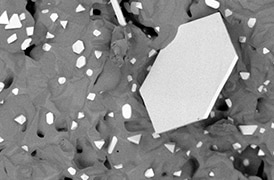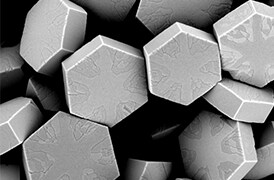In situ analysis
As materials research continues to advance, it is becoming increasingly important to not only observe materials in their initial and final state but also throughout their various applications. This might include imaging metal feedstocks as they are heated for additive manufacturing or wetting and drying of functionalized nanoparticles in order to understand their behavior in real-world conditions. Characterizing these behaviors is crucial as they impact critical research areas such as clean energy, transportation, catalysis, nano-electronics, and even human health.
In situ electron microscopy
While electron microscopy (EM) has traditionally been a static imaging method, advances in sample handling and rapid imaging have allowed the technique to be used for live, in situ observations. The high resolution of EM enables you to investigate nanoscale annealing behavior, phase transformations in metals, structural changes, sintering phenomena in catalysts, segregation/diffusion phenomena, and more.
In situ EM analysis of materials requires that the instruments offer fast and quantitative data acquisition along with dynamic high-resolution imaging. This is especially important when the investigated processes are dependent on rapidly changeable variables like temperature or humidity. For such dynamic experiments, the combination of flexibility in sample imaging, the ability to use different beam and vacuum conditions, and the fast collection of compositional data are indispensable.

























